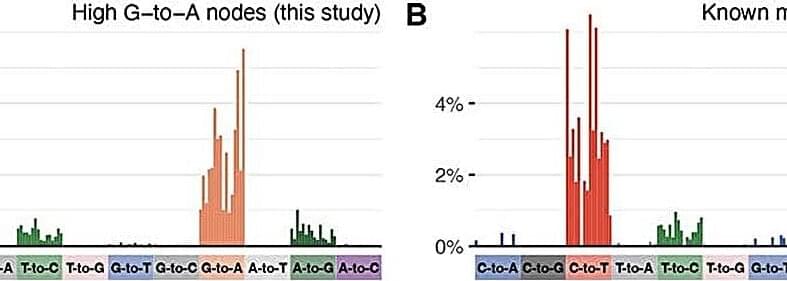Researchers at the Francis Crick Institute, the University of Cambridge, Imperial College London, the University of Liverpool, the University of Cape Town and UKHSA have uncovered a link between an antiviral drug for COVID-19 infections called molnupiravir and a pattern of mutations in the SARS-CoV-2 virus.
Molnupiravir works by inducing mutations in the virus’s genetic information, or genome, during replication. Many of these mutations will damage or kill the virus, reducing viral load in the body. It was one of the first antivirals available on the market during the COVID-19 pandemic and was widely adopted by many countries.
In research published in Nature, the scientists used global sequencing databases to map mutations in the SARS-CoV-2 virus over time. They analyzed a family tree of 15 million SARS-CoV-2 sequences so that at each point in each virus’s evolutionary history they could see which mutations had occurred.
